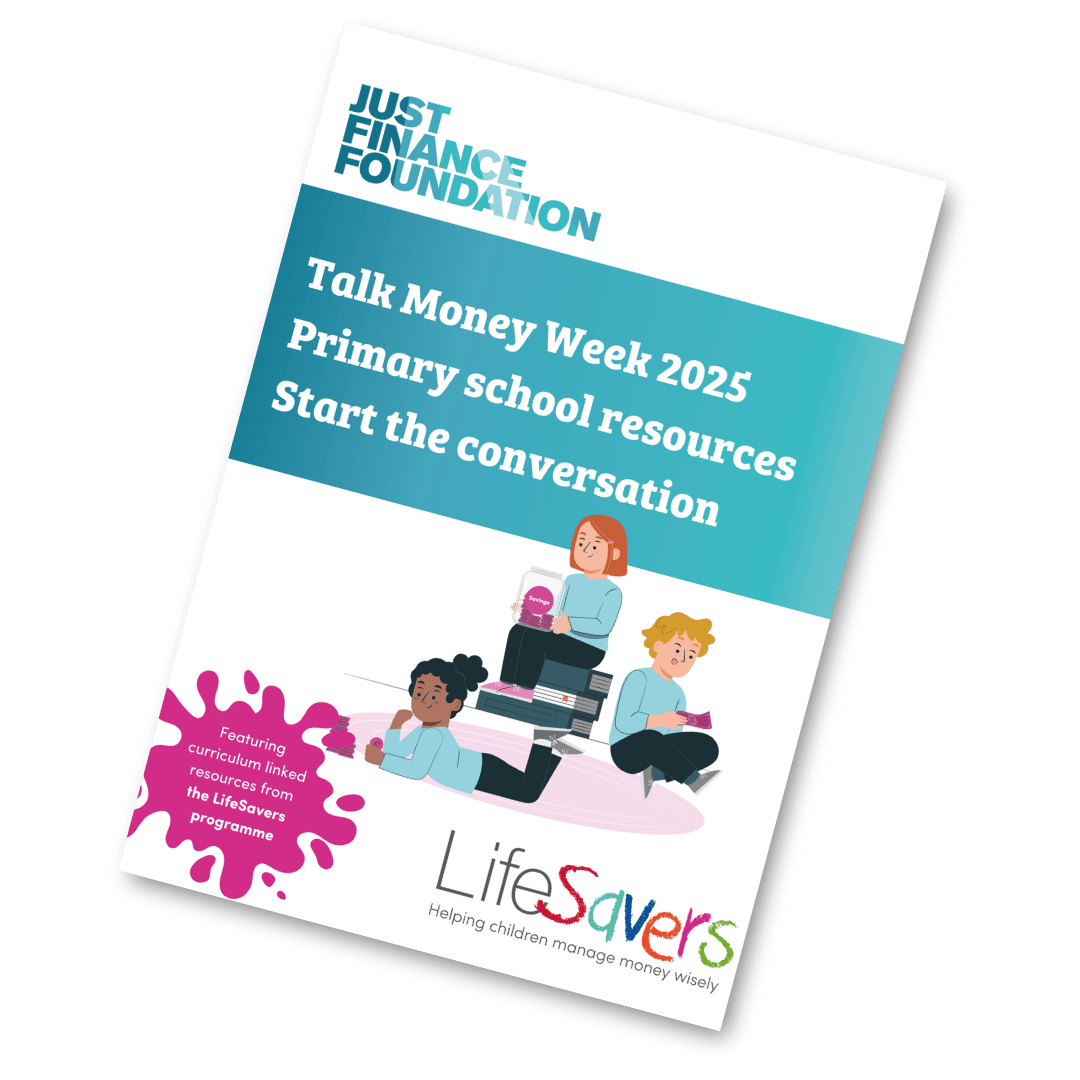Talk Money Week 2025: Start the Conversation
This Talk Money Week, Just Finance Foundation (JFF) is encouraging schools, families, and organisations to start conversations about money early. Open and regular discussions about finances help children develop confidence, make informed choices, and understand the value of money as they grow.
Our Financial Education Expert, Emma Mahon, shares her thoughts and experience on why taking part in Talk Money Week is so important, and how JFF helps children explore finances in ways that are practical, safe, and engaging.
‘Start the conversation’ is a powerful message for 2025’s Talk Money Week, bridging financial learning from the very young to older pupils. There is still stigma around talking openly about money for a myriad of reasons — which, if we’re honest, is understandable. Adults naturally want to protect little ears from money worries, but this can inadvertently lead to avoiding conversations that could be key teaching moments.
Even small opportunities — such as noticing the price of a loaf of bread or thinking aloud about ways to save — encourage children to voice their thoughts and opinions about money. And, as we know, the more pupils talk about a sensitive topic such as money, the more we can develop safe, protective behaviours.
As educators and carers, this gives us the chance to understand what children consider to be ‘wise’ financial decisions and carefully plan how to fill in any gaps. Developing children’s confidence in starting conversations about money helps prevent them from taking information from untrustworthy sources or making rash decisions they might later regret.
Our Conversation Cards are a fantastic upper key stage two resource requiring minimal prep, helping teachers explore these questions in their classrooms while pupils question, wonder, and examine how finances shape society and their future. Milo’s Money is another example, where the main plot follows a young dinosaur called Milo who receives money for the first time and he asks advice from family and friends — modelling to young learners the importance of asking questions and talking about money openly. The 5 Big Questions programme similarly invites pupils to share their thoughts and seek answers, fostering discussion that continues beyond Talk Money Week.
“Every time pupils start talking about money, I see them gaining confidence and curiosity. It’s not just about numbers – it’s about helping them understand the world, make decisions, and feel safe doing so.” – Emma Mahon
Why Talk Money Week Matters
For me, Talk Money Week is about giving children a safe space to practise something that doesn’t always come naturally — talking openly about money. The skills they build in these conversations will last far beyond the classroom. When children feel confident sharing their ideas, they’re much more likely to make thoughtful choices, recognise risks, and ask for help when they need it.
That’s why I love how JFF resources are designed: they’re practical, easy to pick up, and give teachers clear ways to bring money into everyday learning. Whether it’s a short activity, a class discussion, or a story that gets children wondering, the aim is always the same — to make financial education feel relevant and engaging.
By joining in with Talk Money Week, schools and families can:
Make money conversations fun, age-appropriate, and meaningful.
Help children grow in confidence by exploring their ideas together.
Keep the conversations going long after the week ends, building habits that last.
Start the conversation this Talk Money Week
To make things simple, I’ve put together a brand-new Talk Money Week Pack for 2025. It’s full of ready-to-use classroom activities and discussion starters to help children explore money with curiosity and confidence.
Download the pack today and use it with your pupils to spark conversations that could shape their future relationship with money.
Emma Mahon
Financial Education Delivery Coordinator at the Just Finance Foundation, Emma supports schools across the UK to deliver LifeSavers by facilitating training, producing classroom resources and providing ongoing support. A former primary teacher with over a decade’s experience, she draws on her work as a PSHE and Maths coordinator to inform classroom practice and the LifeSavers programme.



